
Alphabetical Menu
Chronological Menu
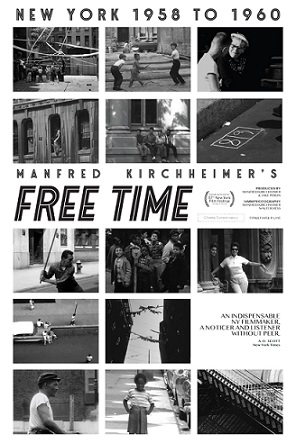
Free Time, directed by Manfred Kirchheimer, is a poetic black-and-white snapshot of what life was like in New York City during the summertime between 1958 and 1960. There are many characters in it including the people of New York, their old-fashioned clothes, the city's architecture, the musical score, the sounds of the city, and, every now and then, the camera also serves as a character. Often those being filmed don't seem aware of the camera, but sometimes they are aware and "act" in front of it while looking directly at the camera. Kids playing in the streets, old men chatting on the sidewalk, and a woman walks her dog and young boys seek refuge from the rain during a thunderstorm. Those are just some of the many scenes that observe the summer activities of New Yorkers before the days of the internet when people interacted face-to-face more often. Kirchheimer also includes brief comic relief when two dogs greet each other on the sidewalk, and he's not afraid to show the more tragic aspects to the city by documenting a homeless man carrying a cart. The film's editing is also exceptional with interesting transitions between scenes, some of which connect thematically. By filming Free Time in cinéma vérité style, sans spoken words, voice-over narration or even textual references to what part of the city you're watching, Kirchheimer trusts the audience's intelligence and imagination. He also doesn't let the film overstay its welcome at a running time of 61 minutes, so he should be commended for showing restraint during the editing process. Less is more, as the saying goes. Much like Agnes Varda, he has a knack for transforming something mundane into something that's profound. It takes great skill, perception, compassion and genuine humanism to accomplish such a remarkable feat. Free Time opens on November 11th at Film Forum's Virtual Cinema via Cinema Conservancy. Ammonite 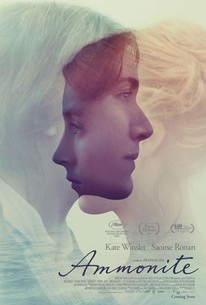 During the 1840s, Mary Anning (Kate Winslet), a paleontologist, lives with her mother in the coastal town of Lyme Regis, England. Roderick Murchison (James McArdle), a scientist, arrives one day with his wife, Charlotte (Saoirse Ronan), who, he claims, is suffering from melancholia and hopes the sea air could cure her. Mary reluctantly agrees to tutor him in her knowledge of paleontology and pays her to let Charlotte stay with her while he goes away for an expedition. Charlotte soon becomes ill and bedridden. After Mary nurses her back to health, they gradually fall in love with each other. Ammonite is as powerful as Portrait of a Lady on Fire which it shares a lot in common with. Writer/director Francis Lee understands that images speak louder than words, so she conveys a lot of information to the audience through the images, some of which are metaphors left open to interpretation. This isn't a straight-forward biopic of the real-life Mary Anning, but it's an interpretation of her life with a few changes, namely, the love affair between her and Charlotte. The heart and main focus of Ammonite is on Mary and Charlotte's relationship. Both of them are lonely women who live stale lives until they meet and get to know one another. Lee does a great job of using exposition in a way that's not distracting or clunky. As you learn, for instance, how Mary's siblings died and she had to take care of the remaining ones which, she explains, is why she doesn't want to have kids now as an adult, you can sense that Mary is still traumatized by her tragic past. Perhaps that's why she seems bitter and stubborn very often. She is, after all, a human being albeit a flawed one which makes her all the more human. Charlotte comes across as a complex, human character too. She's naive at times and not quite as emotionally mature as Mary, but she's a good person who just wants to find happiness and to follow her feet the beat of her heart. Bravo to Lee for showing sex scenes betweem them that are explicit and unflinching much like in Blue is the Warmest Color, but, most importantly, it's the unflinching emotions of the film that enriches it the most. To be fair, though, it would've been interesting if the side characters, like Charlotte's husband or Mary's mother, were fleshed a little bit more because there's not nearly enough scenes with them. Kate Winslet and Saoirse Ronan give brave and moving performances and should be commended for bearing their soul so truthfully, nakedly and effectively on screen. They have palpable chemistry together and can feel their connection which makes you want Mary and Charlotte's relationship to survive. Both the roles of Mary and Charlotte are complex, so it's a testament to the talents of both actresses that they bring them alive and allow you to forget that you're watching a performance because it feels so lived-in. Lee wisely avoids any melodramatic scenes between them or distracting flashbacks or voice-over narration. Not only does he trust the audience's intelligence, emotions, patience and imagination, but he also trusts his actors to convey the characters' emotions and thoughts to the audience through their natural, layered performances. The musical score, cinematography and the sound design, especially the sounds of nature, all help to provide plenty of atmosphere and depth to the film. At a running time of 2 hours, Ammonite is a poetic, sweeping and tender love story. Kate Winslet and Saoirse Ronan give one of the best performances of their careers. 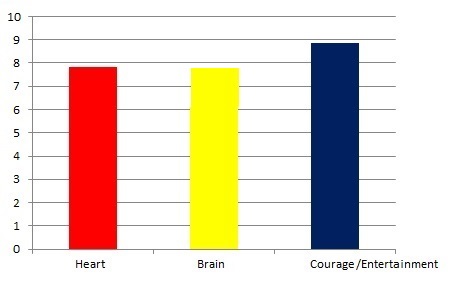 Freaky 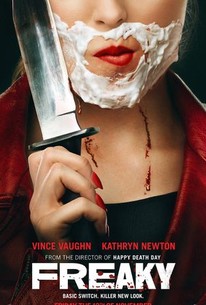 Millie Kessler (Kathryn Newton), a high school student who's bullied at school, lives with her widowed, alcoholic mother, Paula (Katie Finneran), and older sister (Dana Drori), who works as a police officer. One night while her mother forgets to pick her up at school, the notorious serial killer known as the Blissfield Butcher (Vince Vaughn) shows up and stabs her in the shoulder with a dagger. The next morning, she wakes up in his body and he wakes up in hers. It's up to Millie to convince her friends, Nyla (Celeste O'Connor) and Joshua (Misha Osherovich), that she's not the serial killer, despite her appearance. Freaky is a delightful cross between Friday the 13th, Freaky Friday and Heathers. The screenplay by write/director Christopher Landon and co-writer Michael Kennedy deftly blends satire with dark, tongue-in-cheek humor and horror. The opening prologue provides the necessary exposition to introduce the origins of the Blissfield Butcher while also setting up the film's tone. Expect some very shocking, gory deaths that are not for the squeamish. Although the film does include serious subject matters like bullying and grief, it never takes itself too seriously and isn't afraid to go over-the-top. There's a surprisingly moving scene between Millie (as the serial killer) and her mother at her workplace. Alan Ruck, who you'll remember from the 80's classic Ferris Bueller's Day Off, plays a shop teacher who's a jerk to his students, especially Millie. Joshua and Nyla are merely caricatures which is part of what makes Freaky a satire. Also, they provide some great one-liners. There's an amusing nod to Heathers with the song "Que Sera, Sera," and obvious nods to Friday the 13th, so Freaky is clearly proud of the films it's paying homage to. The plot does get very silly at times, but never ceases to be entertaining. Vince Vaugn provides plenty of comedic energy to the film. You actually believe that Millie and the serial killer swapped bodies. Both he and Kathryn Newton seem to be having a lot of fun in their roles, and they spread their fun to the audience too. There's nothing extraordinary or brilliant about Freaky nor does there really need to be, as long as you don't mind checking your brain at the door. It's just an enormously entertaining, funny and zany horror comedy. 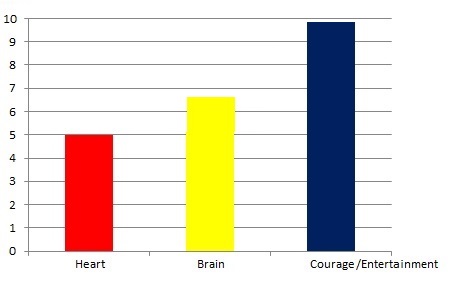 |